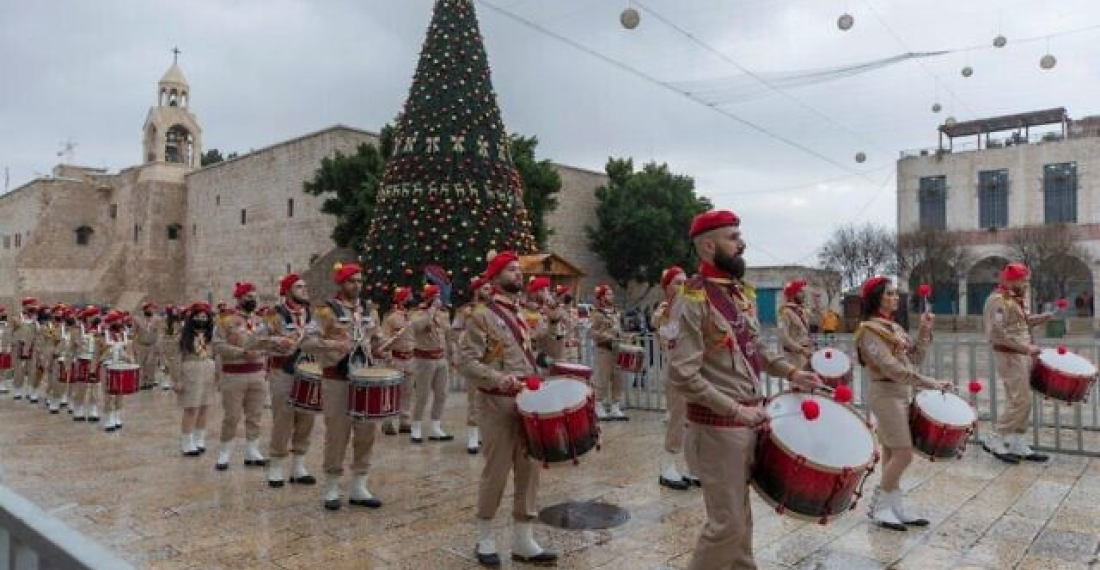From Bethlehem to Rome, Christians around the world celebrate Christmas in a subdued manner, with most communities in lockdown because of the coronavirus pandemic.
Bethlehem on Thursday ushered in Christmas Eve with a stream of joyous marching bands and the triumphant arrival of the top Catholic clergyman in the Holy Land, but few people were there to greet them as the coronavirus pandemic and a strict lockdown dampened celebrations in the traditional birthplace of Jesus.
Similar subdued scenes were repeated across the world as the festive family gatherings and packed prayers that typically mark the holiday were scaled back or canceled altogether.
On Christmas Eve in Italy, church bells rang earlier than usual. The Italian government’s 10 p.m. curfew prompted pastors to move up services, with “Midnight” Mass starting Thursday evening in some churches as early as a couple hours after dark. Pope Francis, who has said people “must obey” civil authorities’ measures to fight the spread of COVID-19, fell in line. This year, the Christmas vigil Mass in St. Peter’s Basilica was moved up from 9:30 p.m. to 7:30 p.m.
Normally, seats at the vigil Mass are quickly snapped up, by Romans and by tourists, but the pandemic has reduced tourists in Italy to a trickle. In keeping with social distancing measures, barely 200 faithful — instead of several thousand — spaced out in the basilica’s pews and wearing masks, attended Pope Francis’ celebration of the Mass. A row of fiery red poinsettia plants warmly contrasted with the sumptuous cold marble of the basilica.
Francis in his homily offered reflections on Christmas’ significance. “We often hear it said that the greatest joy in life is the birth of a child. It is something extraordinary and it changes everything,” he said. A child “makes us feel loved but can also teach us how to love.”
“God was born a child in order to encourage us to care for others,” said Francis, who has made attention to the poor and unjustly treated a key theme of his papacy.
Celebrations elsewhere in Europe were canceled or greatly scaled back as virus infections surge across the continent and a new variant that may be more contagious has been detected.
source: commonspace.eu with agencies
photo: A Palestinian boy scouts band marches through an empty Bethlehem on Christmas Eve.






